Two bodies of masses 1 kg and 3 kg respectively are connected rigidly by a vertcal spring. The body of mass 3 kg rests on a smototh horizontal surface. The force constant of the spring is 484Nm−1. From the equilibrium position, the mass of 1 kg is displaced vertically through a distance of 0.02 m and then released. calculate (i) and frequency of oscillation of the mass of 1 kg (ii) the maximum velocity of this mass (iii) its oscillation energy and (iv) the reaction of the table on the mass of 3 kg, when mass 1 kg is having harmonic oscillations.
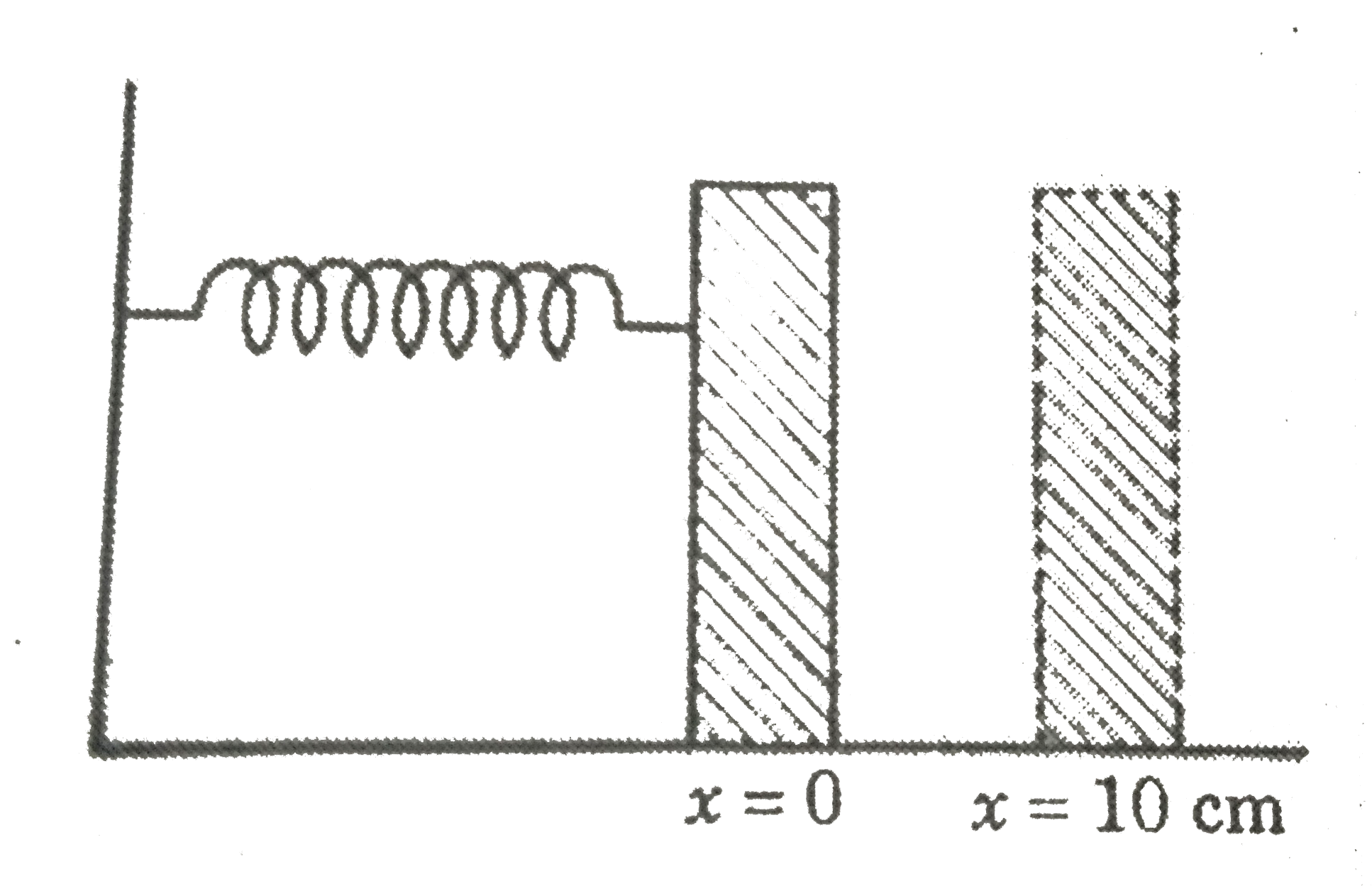
Step by step video & image solution for Two bodies of masses 1 kg and 3 kg respectively are connected rigidly by a vertcal spring. The body of mass 3 kg rests on a smototh horizontal surface. The force constant of the spring is 484Nm^(-1). From the equilibrium position, the mass of 1 kg is displaced vertically through a distance of 0.02 m and then released. calculate (i) and frequency of oscillation of the mass of 1 kg (ii) the maximum velocity of this mass (iii) its oscillation energy and (iv) the reaction of the table on the mass of 3 kg, when mass 1 kg is having harmonic oscillations. by Physics experts to help you in doubts & scoring excellent marks in Class 11 exams.
Updated on:21/07/2023Topper's Solved these Questions
- OSCILLATIONSBook:SL ARORAChapter:OSCILLATIONSExercise:Problems for self practice
Explore 67 Videos
- OSCILLATIONSBook:SL ARORAChapter:OSCILLATIONSExercise:Exercise
Explore 233 Videos
- OSCILLATIONSBook:SL ARORAChapter:OSCILLATIONSExercise:Example
Explore 202 Videos
- MOTION IN ONE DIMENSIONBook:SL ARORAChapter:MOTION IN ONE DIMENSIONExercise:problems for self practice
Explore 66 Videos
- Physical worldBook:SL ARORAChapter:Physical worldExercise:Exercise
Explore 49 Videos
Similar Questions
A spring of force constant 1200Nm−1 is mounted on a horizontal table as shown in figure. A mass of 3.0kg is attached to the free end of the spring, pulled side ways to a distance of 2.0cm and released. Determing.
(a) the frequency of oscillation of the mass.
(b) the maximum acceleration of the mass.
(c) the maximum speed of the mass.
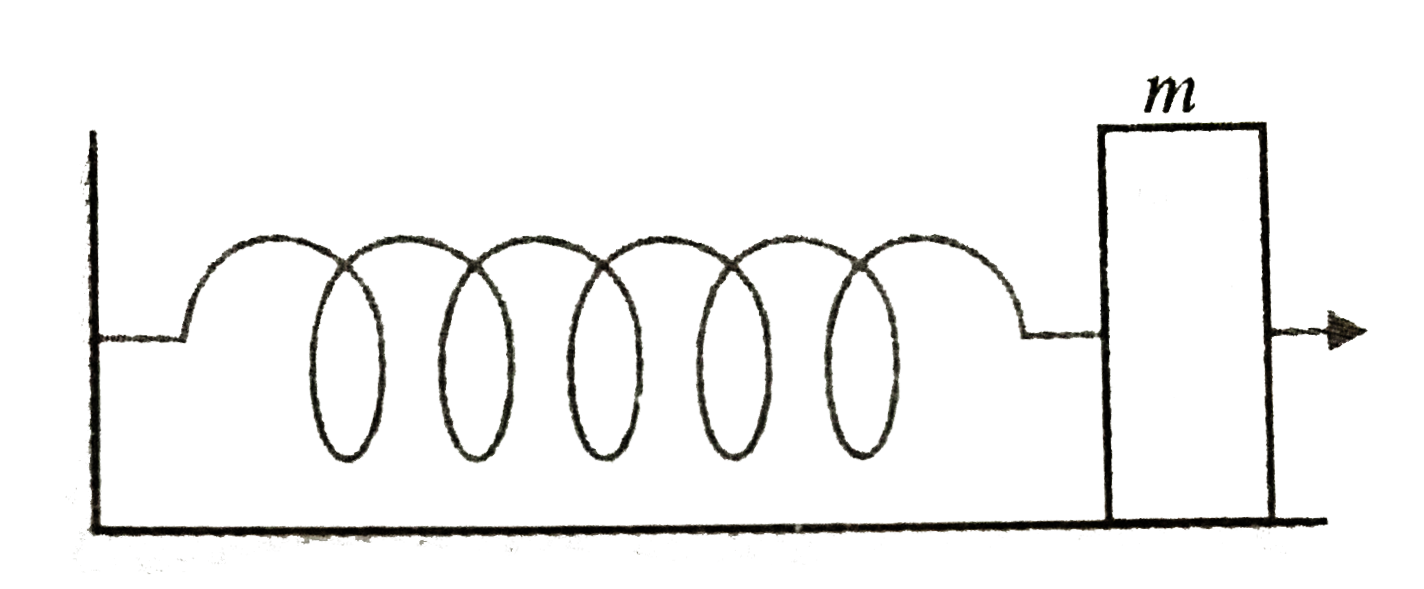
View SolutionTwo bodies A and B having masses 2 kg and 4 kg respectively are separated by 2 m. Where should a body of mass 1 kg be placed so that the gravitational force on this body due to bodies A and B is zero?
View Solution
Knowledge Check
Force constant of a weightless spring is 16Nm−1. A body if mass 1 kg suspended from it is pulled down through 5 cm from its mean position and then released. The maximum kinetic energy of the body will be
A2×10−2JB4×10−2JC8×10−2JD16×10−2JThe force constant of a weightless spring is 16Nm−1. A body of mass 1.0kg suspended from it is pulled down through 5cm and then released. The maximum energy of the sysytem (spring + body) will be
A2×102JB4×102JC8×102JD16×102JThe system is released from rest with both the springs in unstretched positions. Mass of each block is 1 kg and force constant of each spring is 10N/m.
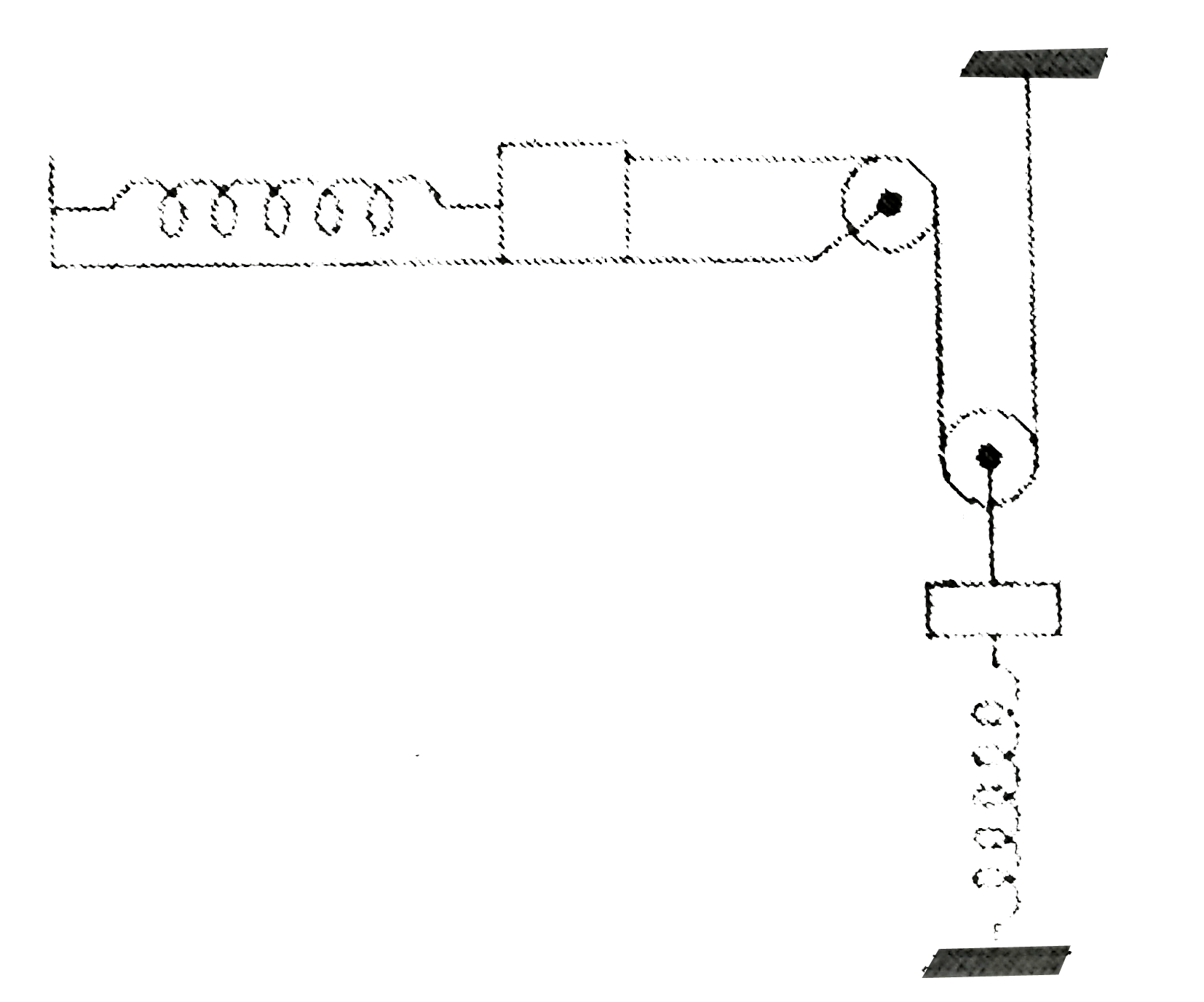
In the equilibrium position, speed of the block placed horizontally isA3.21m/sB2.21m/sC1.93m/sD1.26m/s
Two blocks of masses 10 kg and 20 kg are connected by a massless spring and are placed on a smooth horizontal surface. A force of 200 N is applied on 20 kg mass as shown in the diagram. At the instant, the acceleration of 10 kg mass is 12ms−2, the acceleration of 20 kg mass is:

View SolutionA body of mass 1 kg oscillates on a spring of force constant 16 N/m. Calculate the angular frequency.
View SolutionTwo rigid bodies A and B of masses 1 kg and 2 kg respectively are rigidly connected to a spring of force constant 400 Nm−1 . The body B rests on a horizontal table. From the rest position , the body A is compressed by 2 cm and then released . Deduce (i) teh frequency of oscillation, (ii) total oscillation energy, (iii) the amplitude of the harmonic vibration of the reaction of the table on body B.
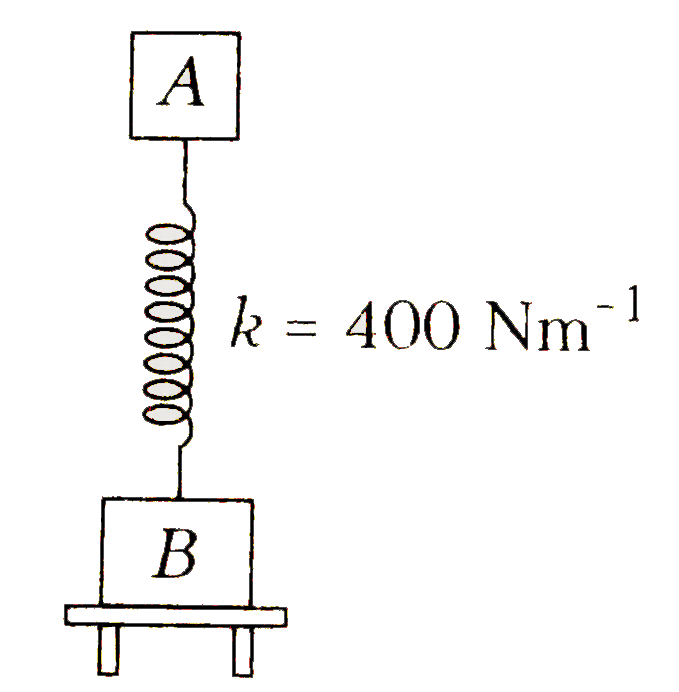
View SolutionTwo bodies of masses 1 kg and 2 kg are located at (1,2) and (-1,3), respectively. Calculate the coordinates of center of mass.
View SolutionTwo masses 10 kg and 20 kg respectively are connected by a massless spring as shown in figure force of 200 N acts on the 20 kg mass. At the instant shown is figure the 10 kg mass has acceleration of 12m/s2 what is the acceleration of 20 kg mass?
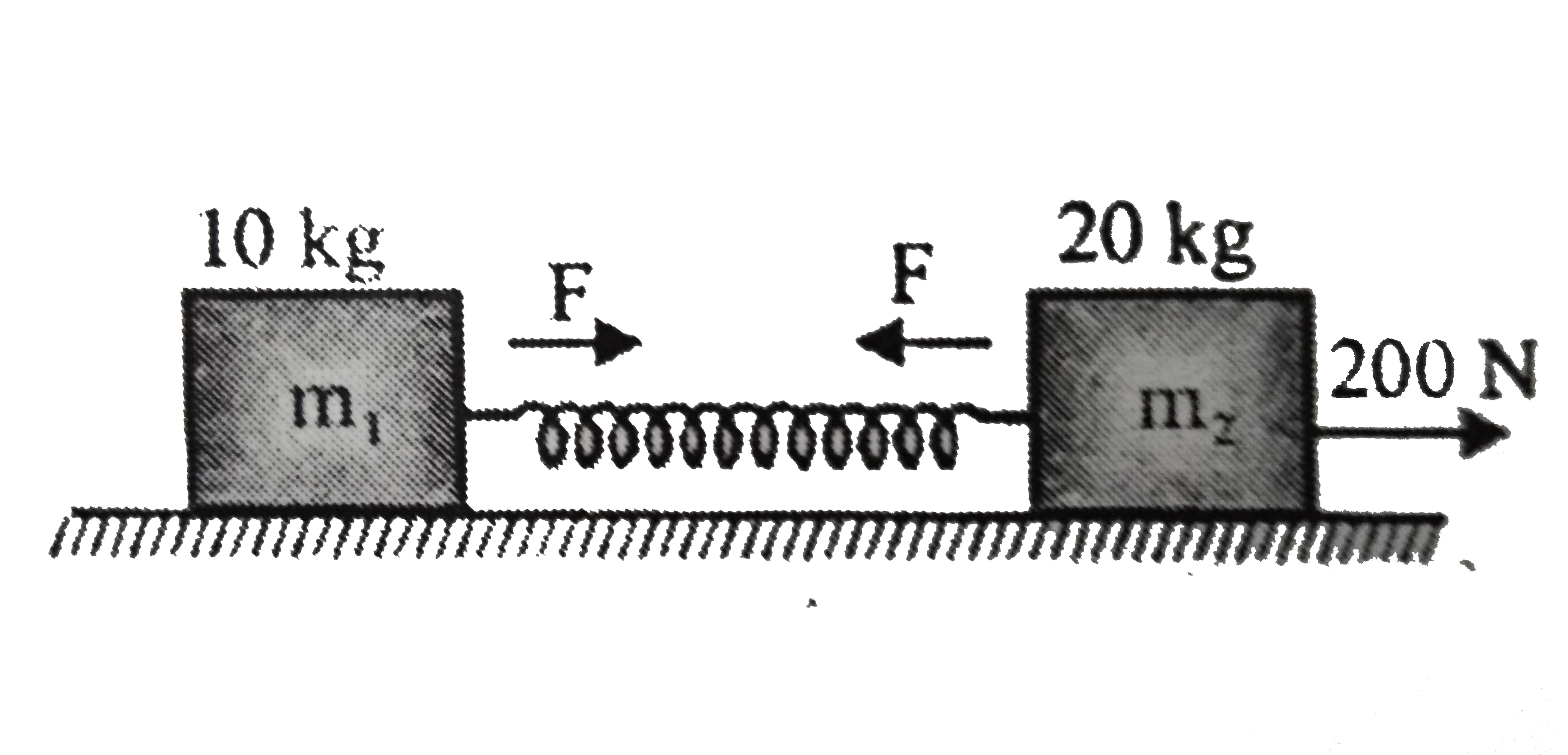
View Solution

